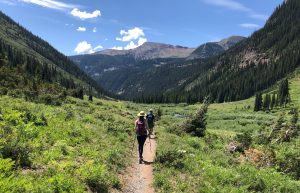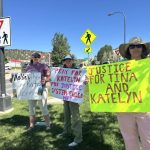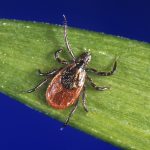Vail icon Helmut Fricker celebrates 50 years in America Wednesday
From winning a cow to buy passage to the U.S. to playing for President Ford, Fricker has lived the American dream
VAIL — Helmut Fricker is so All American that he has his own bobblehead.
Five decades ago on July 3, 1969, the Vail icon and his family landed in the United States, and America is better for it.
The next day, their first day in their new country, they saw parades, picnics and fireworks.
“We thought it must be for us,” Fricker said, smiling.
A few weeks later the Frickers visited Denver with their host family, arriving in the dead of night. The next morning Fricker stepped outside and into a crystal blue Colorado day. He looked around at the pine trees, the roses and gazed west toward the Rocky Mountains that reminded him of his native Germany. He swore he’d never leave. It’s Colorado’s great fortune that he didn’t.

Support Local Journalism
This is a small story about Fricker’s huge life.
An American miracle
Fricker has known love and loss, war and peace. Love and peace are better.
He grew up in war-torn Germany in the 1940s where tragedy was woven into his family’s fabric.
There’s the story about how his school was bombed and he spent 50 hours buried in the rubble before he was found by rescuers collecting the dead. There’s the one about the fighter plane that strafed a railroad track beside his grandmother’s house, leaving shrapnel scars in his forehead and neck you can see to this day. The cat he was holding was killed. Fricker lived.
That two-word sentence, “Fricker lived,” sums up his stories and history.
There’s the awe-inspiring story of his father being ripped from the family in 1939 and forced into the German army. His father had watched his two brothers, Fricker’s uncles, executed for refusing to fight. He knew that, ironically, war was his only chance for survival.
For six long years he fought, mostly to stay alive. In 1942, Fricker’s father was listed as missing in action and presumed dead. The Americans captured him and handed him over to the Russians. He was stuck in a Siberian concentration camp until 1950. The Russians imprisoned more than 10,000 people at the camp, but only 800 survived, Fricker said. In late 1949 a postcard finally found the family. “I’m alive,” was all it said.
On New Year’s Day 1950, 11 years after he’d been taken away, Fricker’s father walked through the door. The reunited family returned to their hometown to rebuild their house and their lives. His father refused a job as a police officer. He looked at Helmut, his young son and said, “For $1 million, I will never put on a uniform again.”
Arriving in America
That same year, 1950, Fricker was offered an opportunity to apprentice with a master bookbinder. Eight years later Fricker was a master. While learning his craft he collected bricks, boards and rusty nails from rubble piles, and saved his money. Finally, in 1965 he built a little house with a small grocery store on one side. By this time Fricker had married Ursula, his childhood sweetheart.
In 1952 his father spent 50 marks for Helmut’s birthday present, an accordion. It took a year to pay it off.
The United States showed itself to Fricker one day when an Oldsmobile rolled up their street in Karlsruhe. He had never seen anything like that huge American car.
Two women climbed out, all powdered up, and walked into his store, wives of officers at the nearby U.S. Army base. The families became good friends and when it came time for them to go back to the U.S., they invited Fricker’s family to immigrate to America.
“We’re going to America!” Fricker announced. No one argued with him, not his wife, Ursula; son, Harald; or daughter, Susie.
How that happened is another fascinating piece of Fricker history.
Reading backward into America
Helmut can read backward, which helped him to win a television quiz show, which is how he got to America. He was plucked from the audience and asked a series of questions about the dairy industry. He didn’t know much about the dairy industry, but he could read backward so he sat down on a stool by the plastic quiz show cow and pretended to milk it. The answers were written inside the bottom of the milk bucket, which Helmut could read because he can read backward.
First prize was a dairy cow. He sold the cow the next day for 900 marks and used the money to buy passage to America.
The family flew to Iceland, then Oklahoma on July 3, 1969, to stay with one of the military families they had befriended in Germany.
The Fricker clan migrated to Denver, where Fricker let it be known that he was a master bookbinder. He had five job offers in a week, although the actual job interviews were short.
“I didn’t speak English,” he said.
Music, though, is the universal language.
He met a German woman, Herta Thomas, who owned an import business in Denver’s Larimer Square. They roped off a huge area and Fricker became a one-man Oktoberfest.
A guy named John Kelly saw him perform and invited him to Vail to perform for a convention at Manor Vail Lodge.
He played wherever he could in Denver and Vail. During breaks he talked to people, improving his English and promoting his book binding business. But he was having a tough time getting a business loan. He’d been turned down by six banks and the Small Business Administration.
One night, he was playing in a Front Range restaurant and one guy was paying close attention. He turned out to be an administrator for the Small Business Administration. They talked a minute, and the guy decided to cut through the red tape.
“You come see me,” the man told Fricker during a break in the show.
“By Wednesday I had $10,000 in my bank account,” Fricker said.
His first Colorado bookbinding customer was Gov. John Love, Fricker said. He had met Love’s secretary during a performance, the same way he met folks from the Denver Public Library. He restored the library’s books from the 1500s to the 1800s. Through it all, he played as much as he could. He still does.
Just keep playing
When it rained in Vail, Fricker jumped on a town bus and rode around and around, playing music for two hours.
“I just keep playing,” he said.
Keep playing, that’s the real miracle of Fricker’s life in America. Like the time he laughed all the way to a picnic because he made Clint Eastwood carry his accordion.
When former President Gerald Ford started the World Forum in Beaver Creek, he invited Fricker to perform. Fricker spotted Betty Ford in a Vail beauty salon a day before and wandered in.
“You know, there’s a tradition of hosting a breakfast dance,” Fricker said.
She didn’t believe him for a second, but it sounded like fun so she gave it the green light.
Fricker invited 14 of his friends, a brass band from Boulder, to join the party. His mother and father were visiting from Europe and when everyone was gathered he told the guys in the band, “We’re playing for President Ford!”
“Flapdoodle!” they responded, or words to that effect.
But about 8 a.m. on a sunny Sunday morning, Fricker and his 14 brass band buddies struck up the band outside President Ford’s Beaver Creek home.
Onto the front porch poured the Fords, Australian Prime Minister Malcolm Fraser, British Prime Minister James Callahan, French Prime Minister Valery Giscard d’Staing, other amused aristocrats, their wives and a bemused Secret Service detail.
They danced. They sang. They had a great time.
It’s good to play. If you’re Helmut Fricker, your life is filled with it, and that’s the miracle.





















